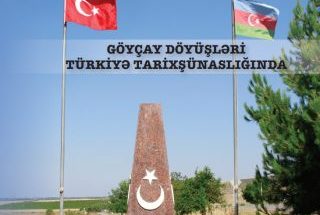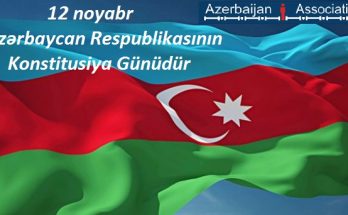 Interview with well-known Russian journalist, political expert and publicist Leonid Radzikhovsky.
Interview with well-known Russian journalist, political expert and publicist Leonid Radzikhovsky.
During his traditional address to the representatives of the Armenian Diaspora on the events of 1915 in the Ottoman Empire U.S. president Barack Obama did not say what Armenians expected of him…
I can name three reasons why Barack Obama did not mention the word “genocide”.
First – Prior to Obama’s words, none of the presidents of the United States said it, so why would he change the existing tradition? Yes, American presidents have long noted this date, talk about the problem, but do not pronounce the “genocide” word.
Second – according to many reputable, and objective persons, there was no genocide in 1915. Let’s be fair.
Third – We must not forget that Obama is a politician, and it certainly is not so much worried about the facts of the case, but for the real political party. Saying “genocide” meant more than seriously damage relations with Turkey, causing insult to all the Turkish people. And Obama, of course, is not interested in spoiling relations with Turkey. Especially today, when the U.S. is in Afghanistan and Iraq, and it has Turkey’s support, it is very important. And in this case, there is no need for a new conflict Turkey. For what to please Armenian diaspora? The price is too high.
Obama understands, that it is important to talk about the events of 1915. He spoke about it, but did not say “genocide”. This is a sensible, balanced position of the U.S President, as well as his predecessors.
How do you think now would the relations between Armenia and the United States, as well as Turkey and the United States develop?
Obama’s speech did not change US-Turkish relations. They have other problems, but they do not depend on the speech of U.S. President on April 24th. Today Turkey is one of the most important allies for U.S. in the Middle East. Especially considering the much worsened relations between the White House and Israel. There’s also Iran, with which nothing seems to be clear. With all this, role of Turkey is considered quite big.
With regard to Armenia, it is of little interest to the United States. Country has no oil, no minerals, no gas, and no military bases. So, in economic terms, relations with Azerbaijan are more important to the U.S.
With regard to direct relations between the U.S. and Armenia, it seems to me that … well, Armenian politicians can scream all they want about Obama, or criticize him, what good will that do? He will not pay attention to them.
The day before Obama’s speech, Serzh Sargsyan spoke out about stopping all actions aimed at the ratification of Armenian-Turkish protocols…
It was a 100% PR, done for domestic consumption. This is no way to frighten Turkey. I’ve always said, that the turkish-armenian protocols are doomed to fail. The difference between the two countries is too big. As for the PR, it didn’t bring anything new to the table. Populist gestures are difficult, when it comes to economy. But when it comes to political PR, populist gestures – the easiest thing to do.
As for all of the above events may affect the next process on the Karabakh settlement, or they are not connected to each other?
I think that to some extent they are related, but it shows again that progress should not be expected anytime soon. If Armenia is represented by its president in every way, proves the hardness of his position and does not intend to compromise, then what compromise are we talking here? Besides, I always said that a compromise is possible on various issues, but in a territorial compromise, it doesn’t work.
The economic situation of Azerbaijan and Armenia are completely different. It is obvious that Azerbaijan is in better position than other CIS countries, and, in particular, Armenia. Armenia is not a military threat to Azerbaijan. Therefore concessions from Azerbaijan would have been strange.
/Today.Az/



